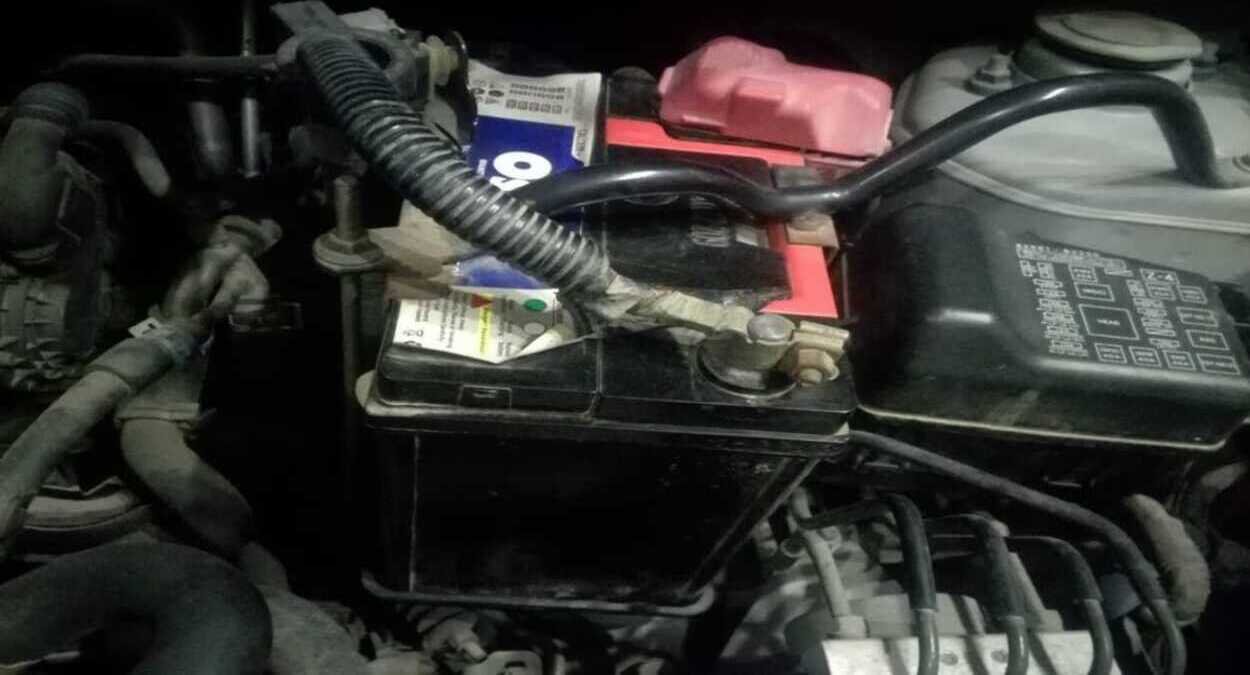How long does a car battery last?
A car battery on average lasts from 2 to 6 years. The lifespan of a car battery can vary based on several factors. These factors include the type of battery, the climate it is used in, and the driving habits of the vehicle owner. The type of battery can affect how long it will last, with some types lasting longer than others. Additionally, extreme temperatures can impact the lifespan of a battery, as excessive heat or cold can cause it to degrade more quickly. Finally, the way a vehicle is driven can also affect the battery’s lifespan, as frequent short trips or constant use of electrical accessories can put more strain on the battery.
What factors damage car batteries?
Several factors can contribute to the damage or deterioration of car batteries:
1-Extreme Temperature:
Extreme temperatures have a significant impact on battery life. Cold weather reduces the battery’s efficiency and hinders chemical reactions. Furthermore, extreme heat can lead to interior corrosion and the evaporation of battery fluid. As a result, both extreme cold and intense heat can shorten the lifespan of a battery. It is important to store batteries in a cool, dry place to minimize the effects of temperature extremes.
2-Overcharging or Undercharging:
Overcharging or undercharging a battery can cause damage. When a battery is overcharged, it generates excessive heat and loses electrolyte. On the other hand, undercharging can result in sulfation, where sulfur builds up on the battery plates, decreasing its capacity. Both overcharging and undercharging can harm a battery and reduce its performance. To prevent this, it is crucial to use a charger that is compatible with the battery and follow the manufacturer’s instructions.
3-Poor Maintenance:
Inadequate maintenance can lead to the battery failing before its expected lifespan.
Regularly Check
- Fluid Level
- Terminal for cleanliness
- Battery is securely mounted.
4-Short Drives or Infrequent Use:
Cars that are not run frequently cannot fully charge their battery. As a result, battery’s life is shortened.
5-Age:
Battery age affects its ability to hold a charge. As a battery gets older, the chemical reactions that create electricity become less efficient. This causes a decrease in performance and eventually, the battery will fail.
6-Vibrations and Mechanical Stress:
Excessive vibrations or mechanical stress, often from rough driving conditions or poorly secured batteries, can damage internal components and reduce the battery’s lifespan.
7-Electrical Drain:
Leaving lights, electronics, or accessories ON, when the engine is off can drain the battery. This can reduce its overall lifespan.
To extend the life of a car battery, it’s essential to ensure proper charging, regular maintenance, and avoiding practices that strain the battery unnecessarily. Periodic checks and replacing old batteries as needed can also help prevent unexpected failures.
How long does a car battery take to charge?
The time it takes to charge a car battery depends on a few things. These things include how charged the battery is, how powerful the charger is, and the battery’s condition.
1-State of Charge:
If the battery is completely drained, it will take longer to charge compared to a partially discharged battery. A deeply discharged battery may require several hours to reach a full charge.
2-Charger Capacity:
The charging rate of the charger plays a significant role. Higher-capacity chargers can charge a battery more quickly. For example, a 10-amp charger will charge a battery faster than a 4-amp charger.
3-Battery Capacity:
The capacity of the battery itself, usually measured in amp-hours (Ah), determines how much charge it can hold. Larger capacity batteries will take longer to charge compared to smaller ones, assuming the same charging rate.
As a general estimate, a completely discharged car battery might take around 4 to 12 hours to charge fully using a standard 12-volt charger, depending on its capacity and the charger’s amperage.
It’s essential to follow the manufacturer’s recommendations for the charger and avoid overcharging, which can damage the battery. Using a smart charger that automatically adjusts the charging rate and switches to a maintenance mode when the battery is fully charged can help prevent overcharging and prolong the battery’s life. If you’re unsure about the charging time or the condition of the battery, it’s advisable to seek professional advice.
Can a Car battery die while parked?.
A car battery can die while the car is parked due to several reasons, even when the vehicle is not in use:
1-Parasitic Drain:-
Some components in the car, like clocks, alarms, infotainment systems, or improperly installed aftermarket accessories, can draw power from the battery even when the car is turned off. Over time, this continuous drain can deplete the battery.
2-Age and Wear:
As a battery ages, its ability to hold a charge diminishes. If the battery is old or nearing the end of its lifespan, it might fail unexpectedly, even when the car is not in use.
3-Faulty Charging System:
A malfunctioning alternator or charging system might fail to charge the battery properly while the car is running. If the battery isn’t being adequately charged during driving, it could lose its charge over time, leading to a dead battery.
4-Extreme Temperatures:
High temperatures can accelerate the chemical reactions inside the battery, causing the electrolyte to evaporate more quickly and reducing the battery’s overall lifespan. Cold weather can also reduce the battery’s efficiency, making it harder for the chemical reactions to occur.
4-Faulty Battery:
A defective or damaged battery might not hold a charge properly, causing it to die unexpectedly, even if the car has been parked for a short period.
5-Corrosion or Poor Connections:
Corrosion on the battery terminals or poor connections can hinder the flow of electricity, preventing the battery from charging or delivering power effectively.
To prevent a car battery from dying while parked, it’s a good idea to periodically check for any electrical issues, ensure all accessories are turned off when the car is not in use, maintain the battery terminals clean and secure, and consider using a trickle charger or driving the vehicle regularly to keep the battery charged. If the issue persists, it might be advisable to have a professional inspect the charging system and battery health.
Can a car battery die while driving?
Yes, a car battery can die while driving, although it’s relatively rare compared to a battery dying while the car is parked. Several reasons could cause a battery to fail while the vehicle is in operation:
1-Faulty Charging System:
If the alternator, which is responsible for charging the battery while the engine is running, fails, it can cause the battery to lose its charge. This situation can lead to a gradual depletion of the battery’s power, eventually causing the car to stall while driving.
2-Corroded or Loose Battery Connections:
Poorly connected or corroded battery terminals can disrupt the flow of electricity between the battery and the car’s electrical system. This disruption can cause intermittent power loss or a complete shutdown while driving.
3-Old or Weak Battery:
An aging or weakened battery might not hold a charge properly or might have a reduced capacity to supply power. This situation can lead to the battery dying unexpectedly, even while the vehicle is in motion.
4-Electrical System Issues:
Faults in the vehicle’s electrical system, such as short circuits, excessive power draw from malfunctioning components, or wiring problems, can drain the battery while driving, resulting in a sudden loss of power.
If a car suddenly loses power while driving, it’s crucial to pull over safely to the side of the road and assess the situation. In the case of a dead battery while driving, attempts can be made to restart the vehicle. However, if the battery is completely depleted or if there are other underlying issues causing the power loss, professional assistance or towing might be necessary to diagnose and fix the problem. Regular maintenance, including checking the charging system and the condition of the battery, can help prevent unexpected failures while driving.

